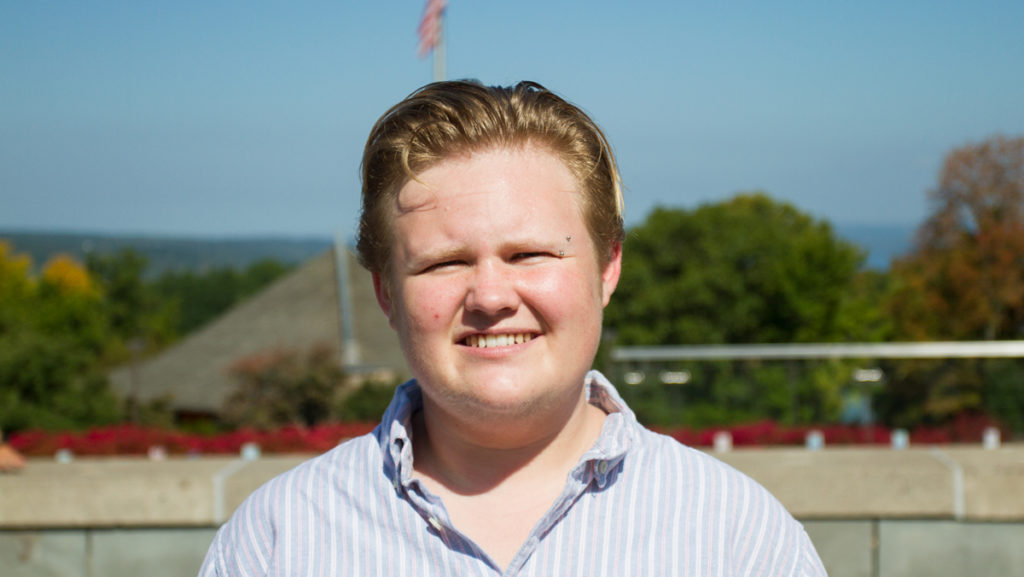On July 26, at 9:04 a.m., President Donald Trump announced via Twitter that transgender individuals would no longer be allowed to serve in any capacity in the US military. Naturally, this caused an uproar among many activist groups, the queer community, and even officers from all branches of the US military.
It’s pretty easy to see why so many people were upset and hurt by this announcement. It’s a decision based on ignorance and bigotry and was made with little to no consideration for the nearly 7,000 transgender troops currently serving in the US military. Unfortunately, not everyone sees what the big deal is about. This is mostly due to lack of education but that’s a whole other story that I won’t get into now. For now, let’s talk about the personal attack our so-called president made against me and thousands of other trans individuals who are serving or who plan to serve in the military.
I have planned to join the Army to do military broadcasting for about 3 years. I came out as trans 2 years ago. Around the time I came out, Obama lifted the ban on trans people openly serving in the armed forces. Obviously I was thrilled that I would be able to continue pursuing my future career. I started taking testosterone shortly after that in an effort to become more myself and prepare for my future as a military broadcaster.
I stopped thinking about it when I started college here at Ithaca. I was distracted by other things, but it was still the goal. I remember my friend Hope texting me if I’d seen the tweet. I hadn’t. I thought about it at work that whole day, trying to figure out how a policy like that could be legal. As I walked back to my dorm that evening I called my mom to vent and ended up crying on the phone with her and my dad for over an hour.
I’d planned on joining the military because I would be able to pay off my student loans, travel the world, and do broadcast work, all while getting health benefits. It’s the best option for me personally. Although being trans was never part of the plan, it’s who I am, and that’s not about to change. I am just as skilled, dedicated and passionate as any cis person.
The logic used to create this policy is highly flawed and stems from a place of ignorance and misinformation. Being trans doesn’t invalidate my ability to be an efficient and valued member of the armed forces. The only thing doing that is Trump and his bigoted staff.
Let’s look at this step by step. As of now, there has been no indication of what will happen to the trans troops currently serving in the military. The ban only specifically bars future enlistment of trans people. Trump is said to be leaving it up to the secretaries of defense and homeland security to decide how to handle troops currently serving openly. Will they be discharged? If so, will it be honorable or dishonorable? Trump nor his administration has indicated the next steps for this policy.
When compared to similar policies (i.e. Don’t Ask Don’t Tell) the flawed logic still makes no sense. What, other than the health care costs, is the threat posed by trans troops? Is it unit solidarity? If that’s the problem why have they not discharged currently open trans service members? Is it a lack of lethality? Again, if so then why allow certain exemptions for those already serving? How do trans service members affect the overall effectiveness of a unit? They don’t.
Looking from a cost viewpoint the policy is still not on solid ground. The cost to support trans troops would be a fraction of the health care costs overall. In a study from Rand Corp. in 2016, the number of trans troops serving was placed between 1,320 and 6,630 and predicted the treatment of 30-140 new hormone treatments per year. From personal experience I can say HRT (hormone replacement therapy) isn’t that costly. The total cost to the health care budget would be between $2.4 million and $8.4 million a year. That’s nothing compared to entirety of the budget.
The trans ban is unethical, immoral and discriminatory, and a whole lot of people know this but do nothing. It should not be up to one segment of the population to right the wrongs that could have been stopped. Trans people are treated like they don’t deserve to live in this country, and now we can’t even die for it? Someone tell me how that’s fair.














